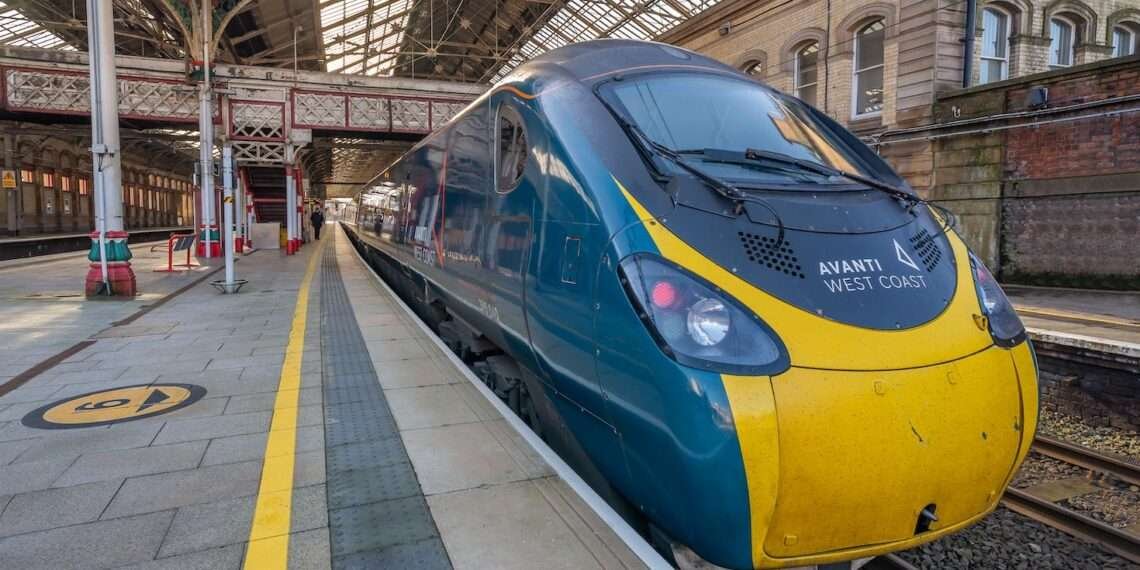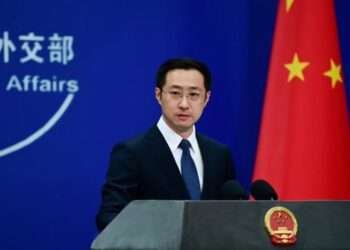Labour has announced a bold plan to bring the railways back under public ownership if they win the election, describing it as the “most significant change to our railways in a generation.”
Under Labour’s proposal, if they come into power, they aim to gradually transition the ownership of rail networks from private companies to the government during their first term.
This transition would involve incorporating existing private passenger rail contracts into a new entity as they expire.
While the government has already put forward its own ideas for reforming the rail system, including the creation of a new public body called Great British Railways (GBR) to manage infrastructure and award operating contracts, Labour’s approach differs.
Instead of following the government’s plan, Labour would establish a reformed version of GBR, which they describe as “unified, publicly owned, accountable,” and led by railway experts rather than government officials.
In addition to restructuring GBR, Labour intends to set up a watchdog called the Passenger Standards Authority. This body would oversee GBR’s operations and ensure that it meets the needs and expectations of passengers.
According to Shadow Transport Secretary Louise Haigh, “Labour’s detailed plans will get our railways back on track; driving up standards for passengers, bringing down costs for taxpayers, driving growth, and getting Britain moving.”
According to the Government’s 2021 reform plan, it anticipates potential annual savings of £1.5 billion within five years by addressing inefficiencies and fragmentation within the rail system.
However, Labour offers a different perspective, based on its own analysis. The party argues that transitioning the railways back into public ownership could lead to cost savings.
It proposed cutting franchise bidding expenses, streamlining resource allocation, and reducing conflicts between operators as potential avenues for savings.
In addition to cost-saving measures, Labour outlined several other changes it intends to implement.
These include introducing automatic refunds for delays and cancellations, ensuring digital season tickets are available across all networks, and improving the integration of timetables, tickets, and fares.
Furthermore, Labour aims to enhance mobile connectivity on trains by advancing towards 5G services and better integrating rail travel with bus and cycle hire services.

Union Leaders Praise and Criticism of Labour’s Rail Vision
Mick Whelan, General Secretary of Aslef, said, “We have seen more positivity in this stunning Labour Party vision for rail than anything at any time from the Tories during their failed privatization and subsequent incoherent rail reform program.
“The Labour commitment delivers for the economy, for the taxpayer, for passengers, and for staff,” he added.
Mick Lynch, General Secretary of the Rail, Maritime and Transport union said, “Labour’s commitment to bring the train operating companies into a new unified and publicly owned rail network is in the best interests of railway workers, passengers and the taxpayer.”
He added, “This announcement however should be a first step to completely integrating all of our railway into public ownership.”
Rail Minister Huw Merriman criticized Labour’s plans, claiming only the Tories had “a plan to continue investing record amounts in our rail network”.
“Labour have confirmed they would push forward with their pointless, unfunded rail nationalization that will do nothing to improve train reliability or affordability for passengers.
“Just like their unfunded £28 billion a year decarbonization promise, they don’t have a plan to pay for the bill attached to their rail nationalization. Without a plan to pay for this, it means one thing: taxes will rise on hard-working people.”
Huw Merriman
Even with Labour’s proposed shift towards public ownership of the railways, there would still be a place for the private sector within Britain’s rail network.
Under Labour’s plan, open-access operators such as Hull Trains and Lumo would retain the ability to compete, aiming to enhance the services available to passengers. Additionally, Labour aims to encourage private investment in the rail sector to drive innovation.
READ ALSO: Serwaa Amihere Apologizes to Family, Associates, Public























